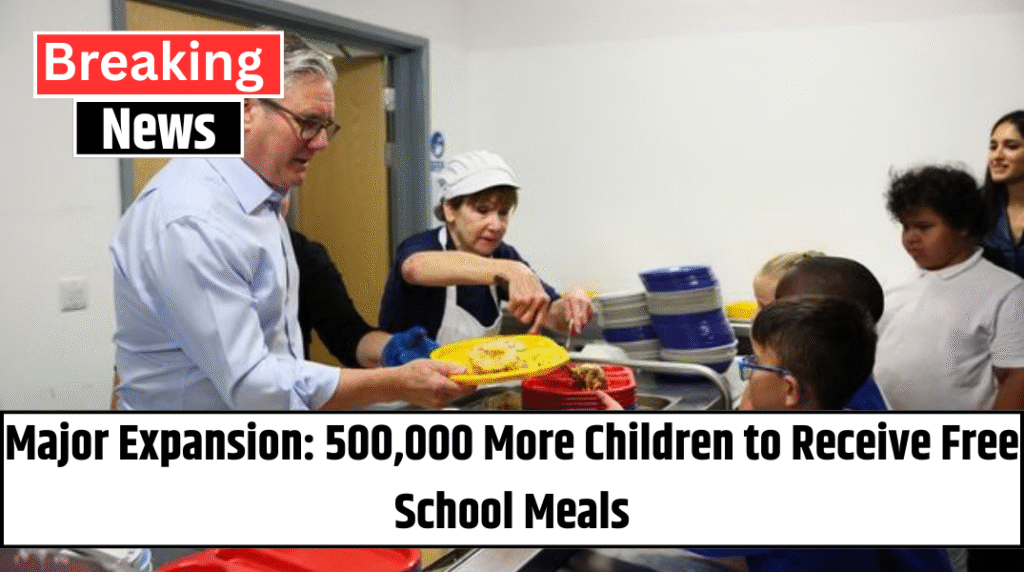Starting in September 2026, all school-aged children in England whose parents receive Universal Credit will become eligible for free school meals, regardless of household income, the UK government has announced.
This landmark policy change, which removes the current income cap of £7,400 a year, is expected to benefit an additional 500,000 children across the country. Ministers claim the measure could save families up to £500 annually and help lift around 100,000 children out of poverty.
Prime Minister Sir Keir Starmer called the policy a crucial step to supporting low-income families and improving children’s education outcomes. He framed the move as a “down payment” on a broader child poverty strategy that includes previously announced free breakfast clubs and other support programs due to be unveiled later this year.
Free Meals as a Tool for Boosting Attainment
Education Secretary Bridget Phillipson emphasized the connection between nutrition and academic performance, stating: “Hungry children cannot learn effectively. Ensuring access to nutritious meals is essential if we want to improve educational outcomes.”
The Department for Education (DfE) has committed £1 billion to fund the expanded meal program through 2029. Although details on how the initiative will be financed remain unclear, Phillipson assured the public that schools would not be expected to cover the costs.
Phillipson also confirmed that the government is actively reviewing the controversial two-child benefit cap, but stopped short of committing to its removal.
Also Read – New Study Finds : UK Kids Enjoy Reading Less Than Ever
Broad Reactions from Across Society
Pop star Zayn Malik, who received free school meals as a child, celebrated the news on Instagram, calling it a moment of “pure joy.” Parents, educators, and charities have also expressed strong support.
Charlotte Evans, a mother of four from Speke, Liverpool, said the free meals provide critical relief for families like hers. “It takes away the worry of whether your children will have enough to eat during the day,” she said.
Education organizations welcomed the reform but urged the government to go further. The Child Poverty Action Group’s Kate Anstey described the expansion as a major improvement, noting that the current eligibility rules exclude roughly one-third of children living in poverty.
The Sutton Trust hailed the change as a “major step in eliminating hunger in schools,” while the Association of School and College Leaders praised it as progress, though warned that more needed to be done.
Controversy Over Funding and School Budgets
While the initiative has been widely applauded, it has also sparked concern from some political figures over its financial implications. Critics argue that the change could strain school budgets because the newly eligible students will not qualify for pupil premium funding — additional money schools receive to support disadvantaged children.
Neil O’Brien, the Conservative shadow education minister, criticized the policy as a “stealth cut,” warning it would create a shortfall in funding without adequate explanation. The DfE said it would review pupil premium allocation in the long term to ensure better targeting.
Also Read – 1 in 5 Pupils in England Now Getting SEN Support, New Data Reveals
Regional Disparities and Ongoing Challenges
Across the UK, access to free school meals already varies. In London and Wales, all primary school children currently receive free meals. Scotland provides meals to children in the first five years of primary school and to those whose families receive the Scottish Child Payment. In Northern Ireland, the income threshold is nearly double that in England — around £15,000 — for families receiving certain benefits.
In England, approximately 2.2 million pupils (25.7% of the student population) are currently registered for free school meals. However, eligibility alone does not guarantee access. Parents must apply, and many eligible children miss out due to administrative challenges or language barriers.
Despite recommendations from Parliament’s Education Committee to implement automatic enrollment, the government confirmed it has no plans to do so at this time.
Looking Ahead
The government is expected to release its full child poverty strategy this autumn, which may include further reforms to benefit eligibility, education support, and food security measures. Until then, stakeholders continue to call for the removal of the two-child cap and broader investment in programs that support disadvantaged families.
As the UK grapples with ongoing cost-of-living pressures, this expansion of free school meals marks a significant policy shift aimed at reducing inequality and ensuring that every child, regardless of background, has the resources they need to thrive in the classroom.



